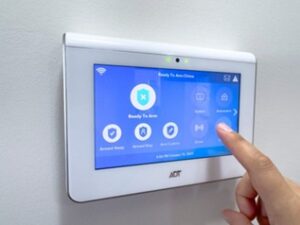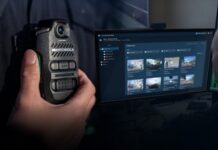
ADT can chalk up another legal victory, this one in Georgia. Commercial subscriber Robert Webb entered a building in Georgia to turn off a false alarm and was exposed to an alarm, which it described as “loud and continuous.”
The personal injury/product liability case does not indicate if the alarm was from a bell or siren, but the system, manufactured by Ademco, is the Security Manager 2000. It’s sold by ADT all over the country. Webb filed an appeal of the ruling in the Eleventh Circuit U.S. Court of Appeals on Sept. 23, 2025.
In the original case, the plaintiff’s expert determined that the alarm emits a sound between 98 and 107 decibels and further concluded that the plaintiff was likely exposed to between 105 and 107 decibels when disarming the alarm for about 15 seconds.
In fact, the Security Manager 2000 is equipped with a special “burglary/audible emergency alarm” feature and the user guide describes the sound of that specific feature as “LOUD, CONTINUOUS,” but there is no evidence that the product included any other warning about the volume of the sounder.
The court noted that the American Academy of Audiology describes 60 decibels as the volume of a typical conversation. The Occupational Safety and Health Administration (“OSHA”) sets permissible noise exposure at 2 hours per day for 100 decibels, 1.5 hours per day for 102 decibels and 0.5 hours per day for 110 decibels.
The National Institute of Occupational Safety and Health (“NIOSH”), a division of the Center for Disease Control, recommends noise exposure levels of no more than 1 hour for 94 A-weighted decibels, 0.5 hours for 97 A-weighted decibels and 0.25 hours for 100 A-weighted decibels. UL standards require that burglar alarms emit a sound of at least 85 decibels when 10 feet away from the sounder.
The court noted that UL standards are industry standards, not regulations, but some states, namely, Maryland, Texas, Oregon and New York, require that all burglar alarms be UL-certified such that alarm companies are prohibited from installing a non-certified alarm.











